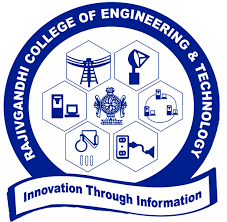- Teacher: GEETHANJALI S
- Teacher: PAVITHRA s
- Teacher: Rajasekaran D
- Teacher: Udhaya shree S
CSMC406 ENVIRONMENTAL SCIENCES
Course Pre-requisite:
• Basic Science Courses
Course Objective:
• To work and produce most efficient, economical, eco-friendly finished products, to solve various engineering problems applying ecosystem to produce eco–friendly products.
Course Outcomes:
• To understand the basic concepts of industrial management.
• To understand the importance of air and noise pollution.
• To analyze the importance of solid and water pollution.
• To understand the importance of renewable sources of solar energy.
• To understand the environmental management in fabrication industry and solid waste management.
UNIT I (9 Hrs)
ECOSYSTEM: Structure of ecosystem-Biotic & Abiotic components- Food chain and food web- Aquatic (Lentic and Lotic) and terrestrial ecosystem- Carbon, Nitrogen, Sulphur, Phosphorus cycle- Global warming, Causes, effects, process, Green House Effect, Ozone depletion.
UNIT II (9 Hrs)
AIR AND, NOISE POLLUTION: Definition of pollution and pollutant-Natural and manmade sources of air pollu- tion (Refrigerants, I.C., Boiler)- Air Pollutants: Types, Particulate Pollutants- Effects and control (Bag filter, Cyclone separator, Electrostatic Precipitator)- Gaseous Pollution Control, Absorber, Catalytic Converter, Effects of air pollution due to Refrigerants, I.C., Boiler- Noise pollution, sources of pollution, measurement of pollution level, Effects of Noise pollution, Noise pollution (Regulation and Control) Rules, 2000.
UNIT III (9 Hrs)
WATER AND SOIL POLLUTION : Sources of water pollution, Types of water pollutants, Characteristics of water pollutants Turbidity, pH, total suspended solids, total solids BOD and COD- Definition, calculation- Waste Water Treatment, Primary methods, sedimentation, froth flotation, Secondary methods- Activated sludge treatment, Trickling filter, Bioreactor, Tertiary Method- Membrane separation technology, RO (reverse osmosis).
UNIT IV (9 Hrs)
RENEWABLE SOURCES OF ENERGY SOLAR ENERGY: Basics of Solar energy- Flat plate collector (Liquid & Air). Theory of flat plate collector- Importance of coating- Advanced collector- Solar pond- Solar water heater, solar dryer- Solar stills- Biomass: Overview of biomass as energy source- Thermal characteristics of biomass as fuel- Anaerobic digestion- Biogas production mechanism- Utilization and storage of biogas- New Energy Sources, Need of new sources- Different types new energy sources- Applications of (Hydrogen energy, Ocean energy resources, Tidal energy conversion) Concept, origin and power plants of geothermal energy.
UNIT V (9 Hrs)
SOLID WASTE MANAGEMENT, ISO 14000 & ENVIRONMENTAL MANAGEMENT: Solid waste generation-
Sources and characteristics of Municipal solid waste, E- waste, Biomedical waste- Air quality act 2004, air pollution control act 1981 and Water Pollution and Control Act 1996- Structure and role of Central and state pollution Control Board- Concept of Carbon Credit, Carbon Footprint- Environmental management in fabrication industry- ISO14000: Implementation in industries, Benefits.
Course Pre-requisite:
• Basic Science Courses
Course Objective:
• To work and produce most efficient, economical, eco-friendly finished products, to solve various engineering problems applying ecosystem to produce eco–friendly products.
Course Outcomes:
• To understand the basic concepts of industrial management.
• To understand the importance of air and noise pollution.
• To analyze the importance of solid and water pollution.
• To understand the importance of renewable sources of solar energy.
• To understand the environmental management in fabrication industry and solid waste management.
UNIT I (9 Hrs)
ECOSYSTEM: Structure of ecosystem-Biotic & Abiotic components- Food chain and food web- Aquatic (Lentic and Lotic) and terrestrial ecosystem- Carbon, Nitrogen, Sulphur, Phosphorus cycle- Global warming, Causes, effects, process, Green House Effect, Ozone depletion.
UNIT II (9 Hrs)
AIR AND, NOISE POLLUTION: Definition of pollution and pollutant-Natural and manmade sources of air pollu- tion (Refrigerants, I.C., Boiler)- Air Pollutants: Types, Particulate Pollutants- Effects and control (Bag filter, Cyclone separator, Electrostatic Precipitator)- Gaseous Pollution Control, Absorber, Catalytic Converter, Effects of air pollution due to Refrigerants, I.C., Boiler- Noise pollution, sources of pollution, measurement of pollution level, Effects of Noise pollution, Noise pollution (Regulation and Control) Rules, 2000.
UNIT III (9 Hrs)
WATER AND SOIL POLLUTION : Sources of water pollution, Types of water pollutants, Characteristics of water pollutants Turbidity, pH, total suspended solids, total solids BOD and COD- Definition, calculation- Waste Water Treatment, Primary methods, sedimentation, froth flotation, Secondary methods- Activated sludge treatment, Trickling filter, Bioreactor, Tertiary Method- Membrane separation technology, RO (reverse osmosis).
UNIT IV (9 Hrs)
RENEWABLE SOURCES OF ENERGY SOLAR ENERGY: Basics of Solar energy- Flat plate collector (Liquid & Air). Theory of flat plate collector- Importance of coating- Advanced collector- Solar pond- Solar water heater, solar dryer- Solar stills- Biomass: Overview of biomass as energy source- Thermal characteristics of biomass as fuel- Anaerobic digestion- Biogas production mechanism- Utilization and storage of biogas- New Energy Sources, Need of new sources- Different types new energy sources- Applications of (Hydrogen energy, Ocean energy resources, Tidal energy conversion) Concept, origin and power plants of geothermal energy.
UNIT V (9 Hrs)
SOLID WASTE MANAGEMENT, ISO 14000 & ENVIRONMENTAL MANAGEMENT: Solid waste generation-
Sources and characteristics of Municipal solid waste, E- waste, Biomedical waste- Air quality act 2004, air pollution control act 1981 and Water Pollution and Control Act 1996- Structure and role of Central and state pollution Control Board- Concept of Carbon Credit, Carbon Footprint- Environmental management in fabrication industry- ISO14000: Implementation in industries, Benefits.
- Teacher: Sundari I
- Teacher: Pavanan B
- Teacher: Elakia K
- Teacher: SAINT JESUDOSS S
- Teacher: GEETHANJALI S
- Teacher: PAVITHRA s
- Teacher: Rajasekaran D
- Teacher: Udhaya shree S
- Teacher: Selvakumar P
